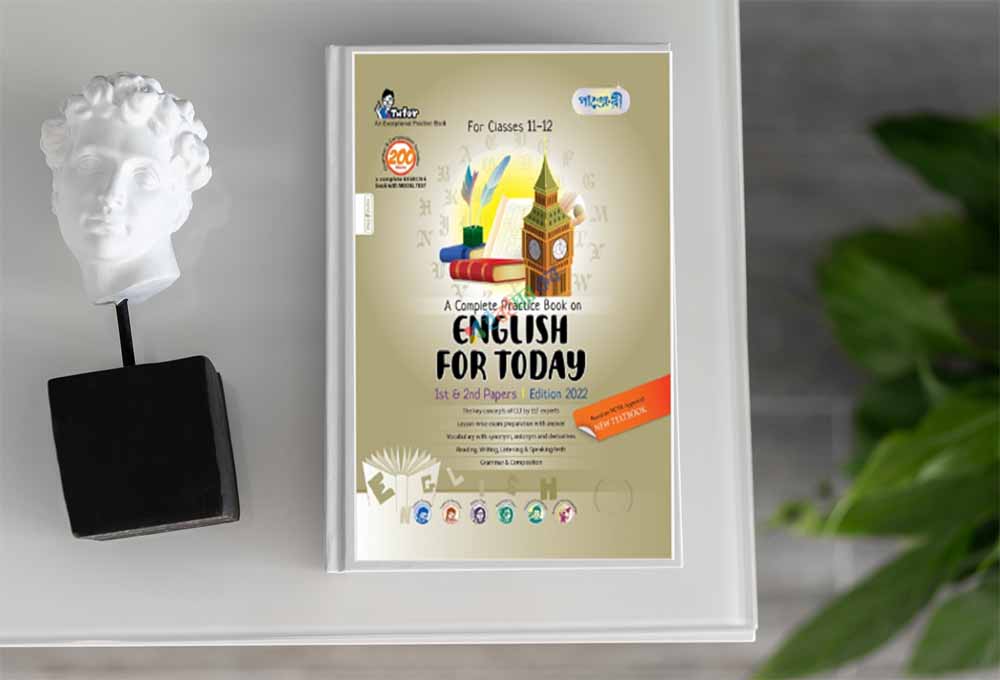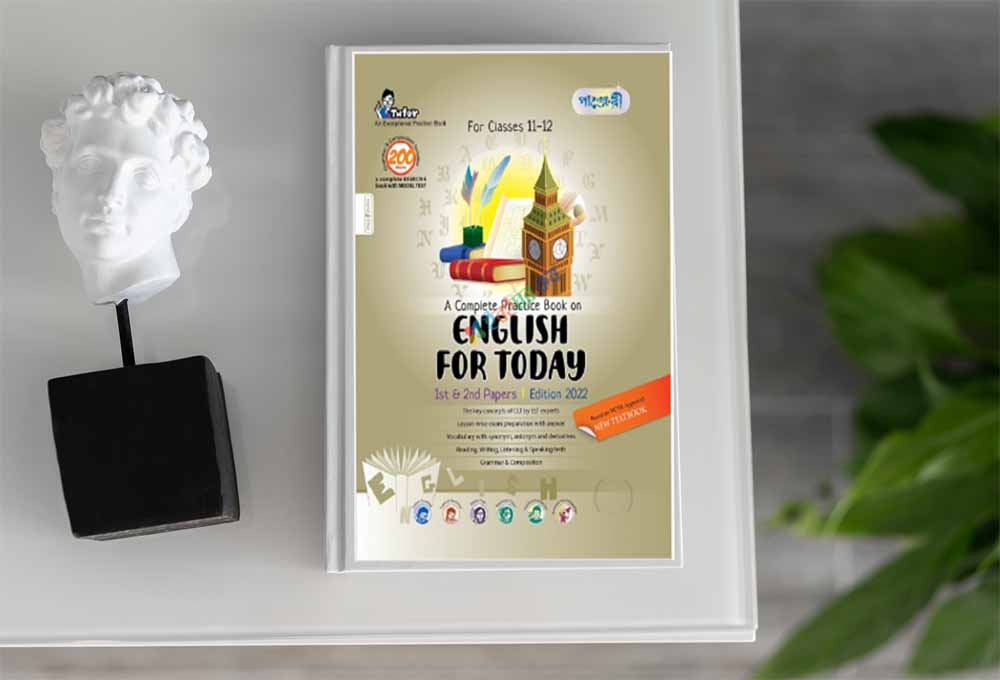HSC English First Paper Rajshahi Board Questions and Answers
Rajshahi Board-2022
English First Paper
[According to the Syllabus of 2022]
Time-2 hours; Full marks-50
[N.B. The figures in the right margin indicate full marks]
- আরো পড়ুন: HSC English First Paper Barishal Board Questions and Answers
- আরো পড়ুন: HSC English First Paper Chattogram Board Questions and Answers
- আরো পড়ুন: HSC English First Paper Cumilla Board Questions and Answers
- আরো পড়ুন: HSC English First Paper Dhaka Board Questions and Answers
- আরো পড়ুন: HSC English First Paper Jashore Board Questions and Answers
- আরো পড়ুন: HSC English First Paper Rajshahi Board Questions and Answers
Part I-Reading Test [Marks-30]
1 Read the following text and answer the question no. 1 :
Kuakata, locally known as Sagar Kannya (Daughter of the Sea) is a rare scenic spot located on the southernmost up of Bangladesh. Kuakata in Latachapi union under Kalapara Police Station of Patuakhall district is about 30 km in length and 6 km in breadth. It is 70 km from Patuakhall district headquarters and 320 km from Dhaka, An excellent combination of the picturesque natural beauty, sandy beaches, blue sky and the shimmering expanse of water of the Bay of Bengal and the evergreen forest makes Kuakata a much sought after tourist destination.
The name Kuakata takes its origin from the story of a ‘Kua’ or well-dug on the sea shore by the early Rakhaine settlers for collecting drinking water. The Rakhaines had landed on Kuakata coast after being expelled from Arakan by the Mughals. Following the first well, it became a tradition to dig wells in the neighborhood of Rakhaine homesteads for fresh water supply.
Kuakata is one of the unique spots which allow a visitor to watch both the sunrise and the sunset from the beach. That perhaps makes Kuakata one of the world’s most attractive beaches. The long and wide beach at Kuakata has a typical natural setting. This sandy beach slopes gently into the Bay and bathing there is as pleasant as is swimming or diving.
Kuakata is truly a virgin beach and a sanctuary for migratory winter birds. Fishing boats plying in the Bay of Bengal with colorful sails, surfing waves and the lines of coconut trees add to the vibrant colours of Kuakata. The indigenous culture of the Rakhaine community and hundred years old Buddhist temples indicate the age-old tradition and cultural heritage of this area.
Kuakata is also a holy land for the Hindus and Buddhists. Each year thousands of devotees come here to attend the festivals Rash Purnima and Maghi Purnima. On these two days, pilgrims take holy bath and enjoy going to the traditional fairs.
- Choose the correct answer from the alternatives:0.5×10=5
(a) What does the word ‘rare’ mentioned in the passage refer to?
(i) common (ii) trifle
(iii) general (iv) uncommon
(b) What is the verb form of ‘beauty’ mentioned in the passage?
(i) beautiful (ii) beautifully
(iii) beautify (iv) beautification
(c) The word ‘Indigenous’ in the passage means…….
(i) alien (ii) native
(iii) foreign (iv) akin
(d) The synonym of ‘perhaps’ is……..
(i) frankly (ii) unlikely
(iii) probably (iv) truly
(e) Kuakata is a holy land for…….
(i) the Buddhists (ii) the Rakhaine
(iii) the Hindus (iv) both the Hindus and Buddhists
(f) The Rakhaines originally came from……..
(i) Arakan district (ii) Kuakata coast
(iii) Latachapli union (iv) Patuakhall district
(g) What does the word ‘origin’ in the passage refer to?
(i) End (ii) Source
(iii) Outlet (iv) Introduction
(h) The word ‘unique’ mentioned in the passage is a/an……..
(i) verb (ii) adverb
(iii) adjective (iv) noun
(i) The word ‘holy’ mentioned in the passage means…….
(i) open (ii) snrine
(iii) free (iv) pure
(j) When, according to the passage, did the Rakhaines settle down on Kuakata coast?
(i) When they were invited by the Mughals.
(ii) When they were expelled from their country by the Mughals.
(iii) When they found the land suitable for living.
(iv) When the Mughals came to Arakans.
Read the following text and answer the questions no. 2 and 3:
As a child you must have been told to greet your elders and visitors to your home according to your culture and tradition. You must also have been taught to be polite in company and keep quiet while others, especially your elders spoke. Possibly, you at times grudged such schooling. Poss behave times you even protested such disciplining. Now, certainly you know that you can’t always have to the way you want specially in the presence of others. There are rules of behaviour you have to follow in a company. We are social being and have to consider the effect of our behaviour on others, even if we are at home and dealing with our family members.
We have two terms to describe our social behaviour-‘etiquette’ and ‘manners’. ‘Etiquette’ is a French word and it means the rules of correct behaviour in society. The word ‘manners’ means the behaviour that is considered to be polite in a particular society or culture. Manners can be good or bad. For example, it is a bad manner to speak with food in one’s mouth. No one likes a bad- mannered person. Remember that etiquette and manners vary from culture to culture and from society to society.
We learn etiquette and manners from our parents, families and various institutions, such as schools, colleges or professional bodies. There are rules of behaviour for all kinds of social occasions and it is important to learn them and practise them in everyday life.
- Answer the following questions: 2×4=8
(a) What do you mean by ‘etiquette’ and ‘manners’?
(b) What have we been taught as a child to do when we are in company?
(c) Manner can be good or bad. Explain the statement.
(d) Where do we learn etiquette and manners from? Why do we have to be careful about etiquette and manners?
- Read the passage and then write the antonym or synonym of the words as directed below :0.5×10=5
(a) tradition (synonym) (b) elders (antonym) (c) wedding (synonym) (d) pleasant (antonym) (e) protest (antonym) (f) possibly (synonym) (g) company (synonym) (h) presence (antonym) (i) polite (synonym) (j) behave (antonym)
- Fill in the blanks with appropriate words in each gap:0.5×8=4
Language plays a very important (a)…….. in our life. We use language from the (b) ……… we wake up in the morning (c) …….. we go to bed at night. We use language to express what we (d) ……… and to say what we like or (e) ……… We also use language to (f) …….information. In short language is (g) ……… present in our life. It is an (h) ………. part of what we do and believe.
- The following sentences are jumbled. Rearrange them in a proper sequence :1×8=8
(a) A number of people applied for the job.
(b) They came through a passage where gold coins were kept.
(c) Once there lived a Sultan in a country.
(d) Then he invited applications.
(e) When they all arrived, the Sultan asked them to dance.
(f) He wanted to appoint an honest man as his tax collector.
(g) The applicants were asked to meet the Sultan one by one.
(h) So, he asked for the wise counsellors advice.
- আরো পড়ুন: HSC-English 1st paper: Model Question 1
- আরো পড়ুন: HSC-English 1st paper: Model Question 2
- আরো পড়ুন: HSC-English 1st paper: Model Question 3
- আরো পড়ুন: HSC-English 1st paper: Model Question 4
- আরো পড়ুন: এইচএসসি ইংরেজি ১ম পত্র মডেল টেস্ট
- আরো পড়ুন: এইচএসসি ইংরেজি ১ম পত্র মডেল টেস্ট-Model Question 6
- আরো পড়ুন: এইচএসসি ইংরেজি ১ম পত্র মডেল টেস্ট-Model Question 7
Part II-Writing Test [Marks-20]
- Write a paragraph on ‘Price Hike’ based on the answers to the following questions : 7
(a) What is price hike?
(b) Why does price of things increase?
(c) How do people suffer for price hike?
(d) How can we control it?
(e) What should we do to stop it?
- The following is the beginning of a story. Complete it in your own words :7
One day I was going to college to take my final exam at 10 am. At 9 when I was 20 minutes away from my college, suddenly a sick old man fell down ……..
- Write a summary of the following text: 6
My name is Amerigo. I am 13 years old and I live on the street, alone. My mother, who is separated from my father, doesn’t want me. She told me to go away. Now she is married to another man. My father lives very far away. I want to go to him, but he won’t take me either. I begged him to send me some money so that I could buy a bus ticket. I am still waiting. He hasn’t answered. The streets are now my home.
Sometimes I find work. I used to collect trash and sell it to a vendor. I stopped doing that after I had a serious infection and a doctor told me to stay away from the trash dump. Once I worked for an ice cream shop owner and sold ice cream on the beach. But I got no money in return. The owner of the shop gave me something to eat, and let me sleep in his hut at night. The work was difficult and painful. The ice cream box is quite heavy when it is full. I had to walk for hours, offering my ice cream whoever wanted to buy. There were days when I could not even sell one ice cream.
In a way, I am lucky because I am alive. My friends who work sorting rubbish in dumps often suffer from serious diseases. One of them was recently killed after he fell into a hole that opened up in the pile of trash. Many of us work for 10 to 12 hours, and get so little in return that we can’t even buy food.

Solution To Rajshahi Board-2022
Part-I
- (a) (iv) uncommon (b) (iii) beautify (c) (i) native (d) (iii) probably (e) (iv) both the Hindus and Buddhists (f) (i) Arakan district (g) (ii) Source (h) (iii) adjective (i) (iv) pure (j) (ii) When they were expelled from their country by the Mughals.
- Question and answer:
(a) ‘Etiquette’ means the rules of correct behaviour in society and ‘manners’ means the behaviour that is considered to be polite in a particular society or culture.
(b) As a child we have been taught to remain polite with others when we are in company.
(c) Manners can be good or bad. For example, it is a good manner to bear a smiling face when we are introduced to someone and it is a bad manner to avoid someone who is willing to talk to us.
(d) We learn etiquette and manners from our parents, families and various institutions, such as schools, colleges or professional bodies. We have to be careful about etiquette and manners because manners that are correct in a wedding reception will not do in a debating club.
- (a) custom (b) juniors (c) marriage/coupling (d) unpleasant (e) accept/ approve (f) perhaps / probably (g) people/friends/ companions (h) absence (i) gentle (j) misbehave
- (a) role (b) time (c) until (d) want (e) dislike (f) pass (g) always/ever (h) integral
- Rearrange:
| 1 | 2 | 3 | 4 | 5 | 6 | 7 | 8 |
| c | f | h | d | a | g | b | e |
উক্ত বিষয় সম্পর্কে কিছু জানার থাকলে কমেন্ট করতে পারেন।
আমাদের সাথে ইউটিউব চ্যানেলে যুক্ত হতে এখানে ক্লিক করুন এবং আমাদের সাথে ফেইজবুক পেইজে যুক্ত হতে এখানে ক্লিক করুন। গুরুত্বপূর্ণ আপডেট ও তথ্য পেতে আমাদের ওয়েবসাইটে ভিজিট করুন।











